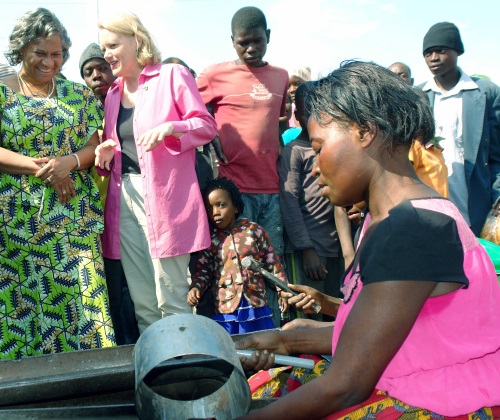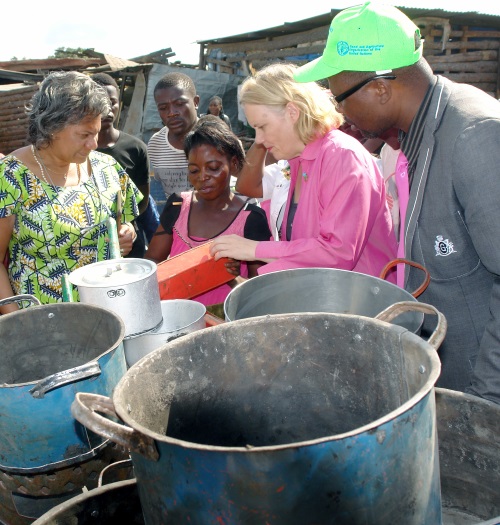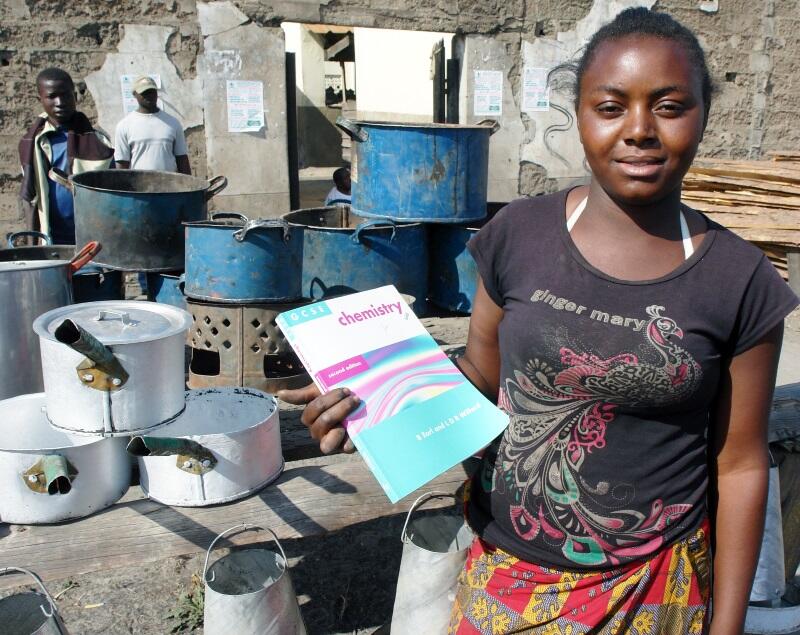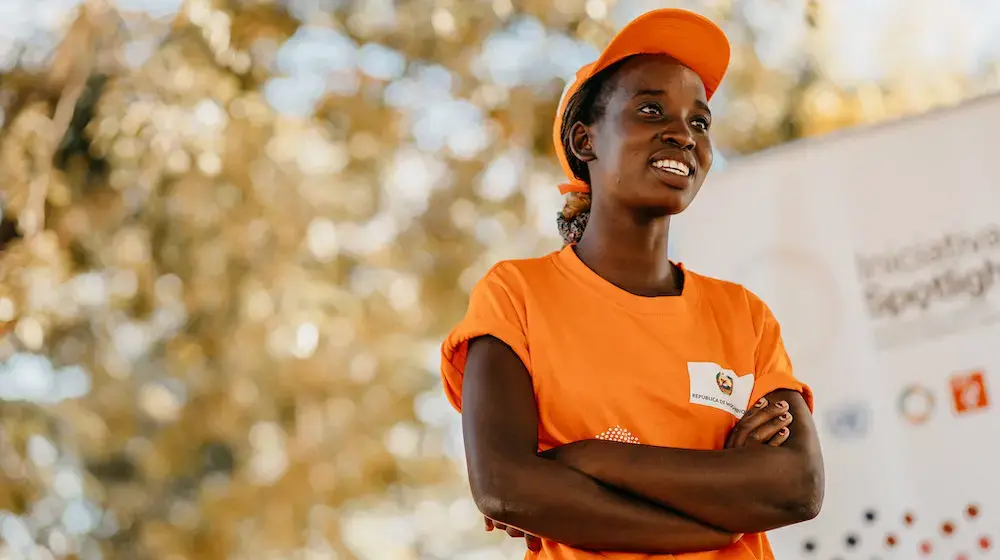CENTRAL PROVINCE, Zambia – “Women should not get discouraged from doing work that society deems fit only for men. Women are as capable as men in becoming successful in business. I am actually proud to be the only female blacksmith in my community!”
These are the words of Mary*, whose story is an inspiring one. She explains: “I have been collecting scrap metal littered around the market and communities since 2013. Using these, I began moulding cooking pots, frying pans and braziers.”
During the 2015 Provincial Women’s Economic Empowerment Expo, she was identified as one of the best female upcoming entrepreneurs, in her trail-blazing role.
Learning from my mother, I have seen that working hard and finding innovative means to earn a living can yield results. – Gift, 18 (Mary’s daughter and fellow blacksmith)
First female blacksmith in Central Province

Like many women and adolescent girls across Zambia, those in Central Province face gender-based barriers to equitable access to economic benefits. For Mary, the province’s first female blacksmith, the socio-cultural barriers have not discouraged her from building skills to become a successful entrepreneur.
Her example has not gone unnoticed. Her daughter, Gift, 18, has a word of advice for her fellow adolescent girls: “I have seen a lot of my friends go into prostitution, become pregnant or get married, and consequently drop out of school due to poverty at home. As for me, learning from my mother, I have seen that working hard and finding innovative means to earn a living can yield results.
“Right now I am preparing to write my grade 12 exams. We have managed to pay for my secondary education using the little money we generate from this business [as blacksmiths]. When I finish my education, I want to become a mechanical engineer, an interest I developed while helping my mother make cooking pots and braziers out of scrap metal,” she says.
When given opportunities, young people, especially girls, can indeed develop to their full potential. - Dr. Julitta Onabanjo, UNFPA Regional Director for East and Southern Africa
Breaking gender barriers
UN Zambia Resident Coordinator Janet Rogan commended Mary’s determination to excel beyond gender barriers: “Mary is an example of how women, when given platforms to develop their skillset, are able to move themselves out of poverty and contribute to the broader economic development of Zambia.”

© UNFPA
UNFPA Regional Director for East and Southern Africa, Dr. Julitta Onabanjo, on a courtesy visit to the Central Province Permanent Secretary, agreed: “This is a clear indication that when given opportunities, young people, especially girls, can indeed develop to their full potential.”
Dr. Onabanjo visited Kabwe and Kapiri Mposhi Districts of Central Province in Zambia on 26 May, during her attendance at the 39th Africa Development Bank 2016 Annual Meeting on Climate Change and Sustainable Energy in Zambia. She was accompanied by UN Zambia Resident Coordinator Janet Rogantoge, FAO Regional Representative for Africa Bukar Tijani, FAO Senior Economist Suffyan Koroma, UNFPA Zambia Representative Dr. Mary Otieno and FAO Zambia Representative George Okech on visits to a number of projects, including the Lukomba Rural Health Centre, the conservation farming project, the first Gender-Based Violence fast track court, and the Central Province blood bank. The entourage also had an opportunity to meet with the Government’s provincial staff led by the Permanent Secretary of Central Province.
By Precious Zandonda
* Full name withheld.



